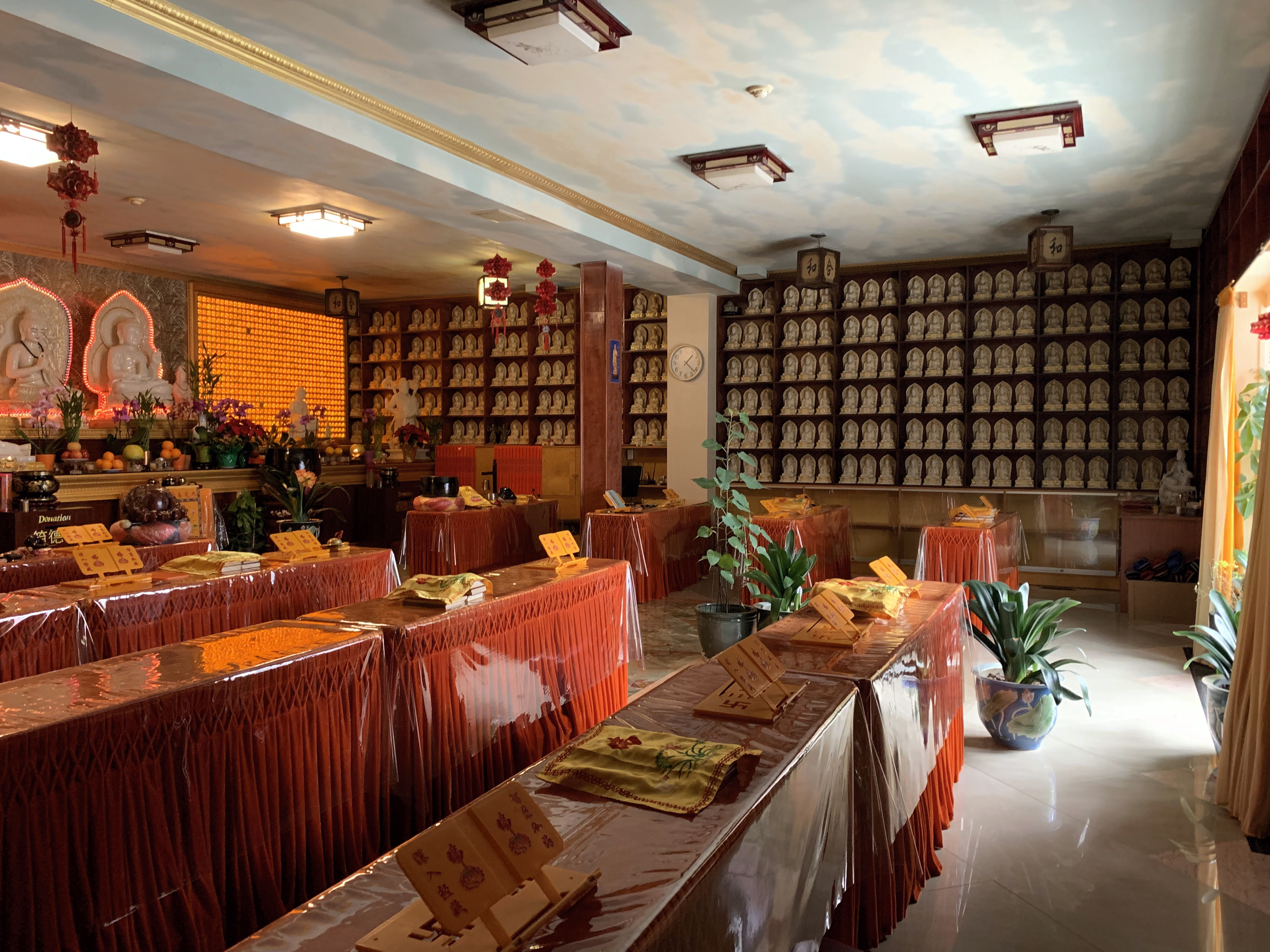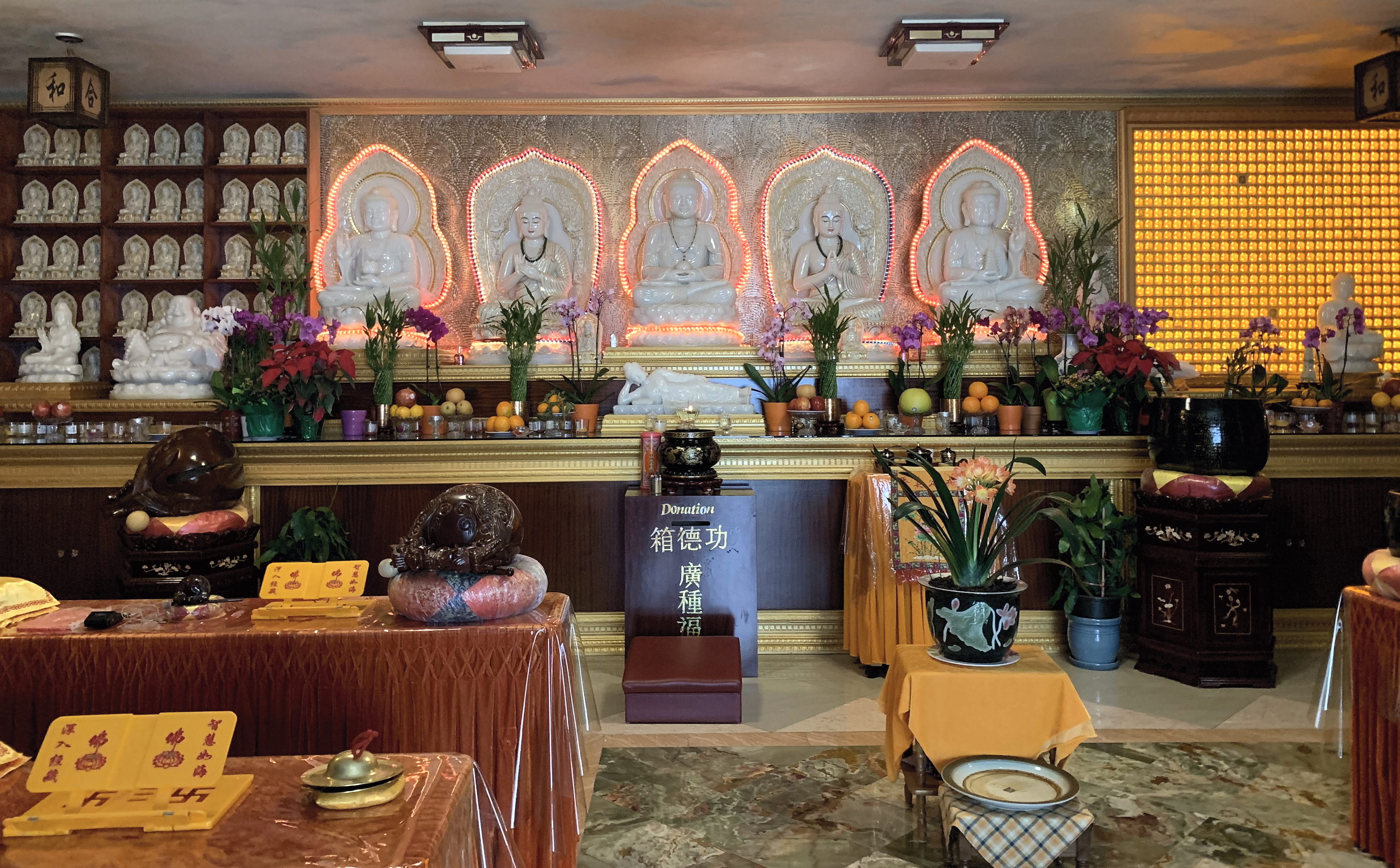Open 10am-6pm daily. Services every Sunday 8am-1pm. Festival days on first and fifteenth days of first month of the Chinese lunar calendar. Founded in 2008. Affiliated with the Zhenru Temple (真如寺) in Xiapu, Fujian (福建霞浦). Two monastics currently in residence, one male, one female. Mainly first and second-generation immigrants. The interviewee (a resident monk) distinguished between physical and mental health. Physical health is due to karma. By treating others well, one receives the merit of good health. However, he also stated that health is also controlled by one's fate, and can be determined based on the birth date. Both karma and fate can be affected by doing good deeds. Mental health mirrors one's behavior, so these are also related to karma. Most modern people have mental health issues related to obsessive thoughts and behavior, which cause anxiety. The interviewee explained that by encouraging people to follow laws, maintain social harmony, and treat all ethnic groups with respect, Buddhism encourages a healthy and happy society, which also contributes to people's wellbeing. In terms of specific health-related practices, he mentioned chanting the Diamond Sūtra and the Kṣitigarbha Bodhisattva Sūtra twice daily. Specific chants offered to the sick during private recitations include chants associated with Avalokiteśvara and Bhaiṣajyaguru. Dharma talks are also offered to the ill, as are specific good works such as liberating animals and adopting vegetarianism (the merit from these actions can be transferred to the sick). The interviewee stressed that you cannot use go to this temple to buy health. It is not a business, and you cannot trade money for blessings, merits, and so forth. You must have a sense of "citizenship" in the temple. The interviewee advocated a "Middle Path" for maintaining health. Maintain peace of mind and a healthy lifestyle, and be mindful of your health. However, when you are sick, go to the doctor and don't just stay at home and believe the Buddha will take care of your illness.Zhenru Si (真如寺), a.k.a. Sino-American Temple
Location Finder
Basic information
Address:
1910 South 7th Street, Philadelphia, PA, USA
Sectarian affiliation(s):
Cultural, linguistic, ethnic representation:
Geographic origins of institution, founder, or network:
Best time to visit:
Date last visited:
December 19, 2018
Currently active?:
As of the last time it was visited by our research team, this location was open.
Other Basic Information:
Local setting, neighborhood, demographics
Connections with medicine, healing, wellness
Categories:
Temples



